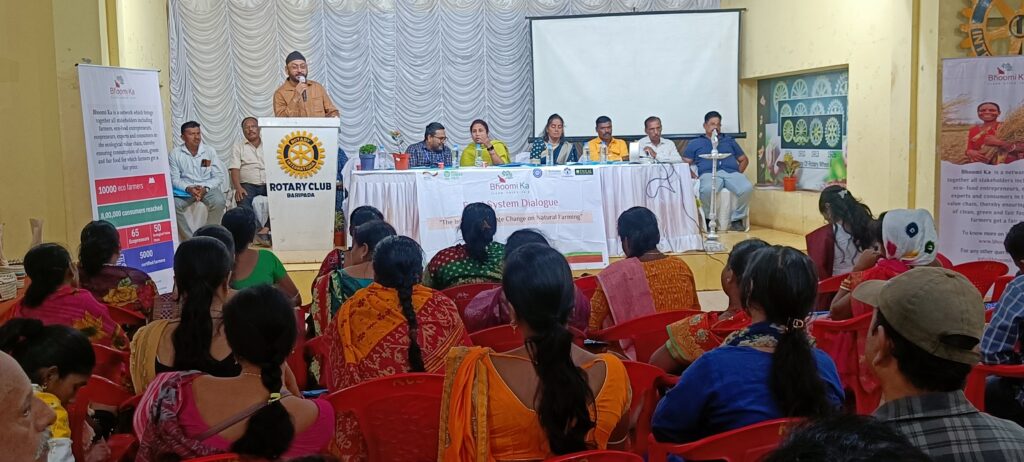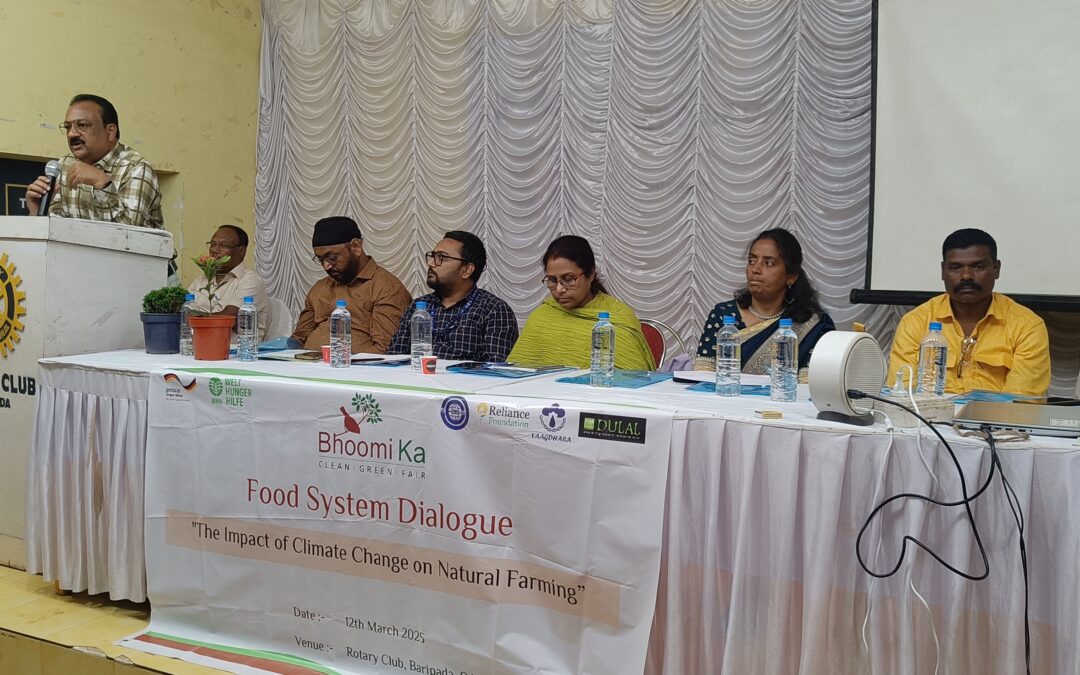Date: 12th March 2025
Organizer: CWS, Jharkhand
Supporting Partners: Reliance Foundation, SOOVA & Dulal NGO (Odisha)
Venue: Rotary Club, Baripada, Odisha
Introduction
Climate change poses a significant global challenge with severe implications for agriculture. To address these concerns, CWS-Bhoomi Ka, in collaboration with the Dulal Volunteer Organization and other partners, organized a Food System Dialogue in Baripada. The discussions underscored the urgent need for adaptive agricultural strategies to mitigate climate change’s adverse effects and ensure food security.
Key Discussions from the Workshop
1. Adaptation Strategies for Climate-Resilient Agriculture
District Agriculture Officer Vishan Ballab Das emphasized the importance of adaptive farming techniques to sustain agricultural productivity in the face of climate uncertainty. Farmers and experts deliberated on innovative approaches to enhance resilience.
2. Integrating Mechanization with Traditional Practices
Balancing modern mechanization with time-tested traditional farming practices emerged as a key theme. The discussion focused on how the fusion of both approaches can enhance sustainability and mitigate risks posed by climate variability.
3. Crop Diversification as a Sustainable Approach
The workshop highlighted the importance of diversifying crops beyond paddy to include non-paddy varieties. Short-day interval paddy cultivation and the adoption of multiple crop cycles were explored as viable options to improve food security and reduce dependency on single crops.
4. Expert Insights on Climate-Resilient Agriculture
Notable experts, including Assammitra Patnaik (AGM NABARD), Smarak Mohanty (Ombudsman Livelihood Expert), Mahendra Padhi, and Pankaj Behera (Editor of Dulal), provided valuable perspectives on sustainable agricultural practices. Their discussions offered actionable strategies to combat the effects of climate change on farming.

Voices from the Field: Farmers’ Experiences
Successful farmers from different panchayats shared firsthand experiences of adapting their agricultural practices to changing climatic conditions. Their insights provided practical, real-world examples of how local solutions can contribute to sustainable agriculture.
Key Takeaways from the Workshop
- Adaptation is Crucial: Farmers must adopt innovative and flexible farming techniques to sustain productivity amidst climate uncertainties.
- Hybrid Approaches Work Best: A combination of traditional methods and modern mechanization can enhance efficiency and resilience.
- Crop Diversification is Essential: Encouraging the cultivation of diverse crops, including non-paddy varieties, can mitigate risks associated with climate change.
- Farmer Experiences Are Valuable: Real-world adaptations shared by farmers provide practical solutions for localized agricultural challenges.
- Collaborative Efforts Are Key: Governments, NGOs, and local communities must work together to create effective and sustainable solutions.
- Education and Awareness Matter: Training programs on climate-resilient farming techniques can empower farmers to implement necessary adaptations.
- Investing in Research and Development: Sustainable agricultural research and the development of climate-resilient crop varieties are crucial for long-term success.
- Policy Support is Needed: Government and financial institutions, such as NABARD, play a vital role in enabling the transition to climate-resilient agriculture.
Recommendations for the Future
- Raise Awareness: Promote climate-resilient farming techniques through education and outreach.
- Support Sustainable Practices: Encourage mechanization alongside traditional farming methods.
- Expand Research and Innovation: Invest in developing sustainable agricultural practices.
- Strengthen Partnerships: Foster collaboration between government agencies, NGOs, and farming communities to enhance resilience.
Conclusion
The Food System Dialogue in Baripada highlighted the critical need for climate-resilient farming practices. By integrating traditional knowledge with modern innovations and encouraging crop diversification, the agricultural sector can better withstand climate challenges. Moving forward, collective efforts from all stakeholders will be essential in building a more sustainable and resilient food system.

